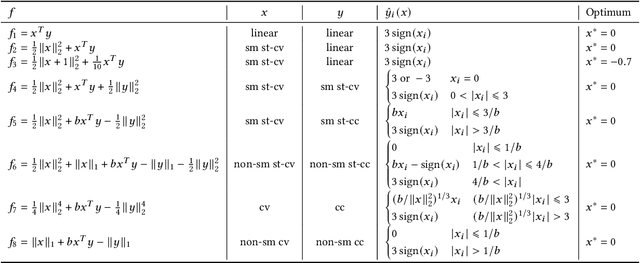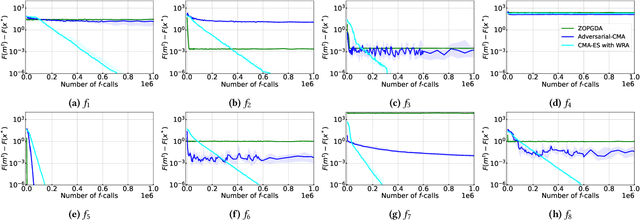Black-Box Min--Max Continuous Optimization Using CMA-ES with Worst-case Ranking Approximation
Paper and Code
Apr 06, 2022



In this study, we investigate the problem of min-max continuous optimization in a black-box setting $\min_{x} \max_{y}f(x,y)$. A popular approach updates $x$ and $y$ simultaneously or alternatingly. However, two major limitations have been reported in existing approaches. (I) As the influence of the interaction term between $x$ and $y$ (e.g., $x^\mathrm{T} B y$) on the Lipschitz smooth and strongly convex-concave function $f$ increases, the approaches converge to an optimal solution at a slower rate. (II) The approaches fail to converge if $f$ is not Lipschitz smooth and strongly convex-concave around the optimal solution. To address these difficulties, we propose minimizing the worst-case objective function $F(x)=\max_{y}f(x,y)$ directly using the covariance matrix adaptation evolution strategy, in which the rankings of solution candidates are approximated by our proposed worst-case ranking approximation (WRA) mechanism. Compared with existing approaches, numerical experiments show two important findings regarding our proposed method. (1) The proposed approach is efficient in terms of $f$-calls on a Lipschitz smooth and strongly convex-concave function with a large interaction term. (2) The proposed approach can converge on functions that are not Lipschitz smooth and strongly convex-concave around the optimal solution, whereas existing approaches fail.
 Add to Chrome
Add to Chrome Add to Firefox
Add to Firefox Add to Edge
Add to Edge